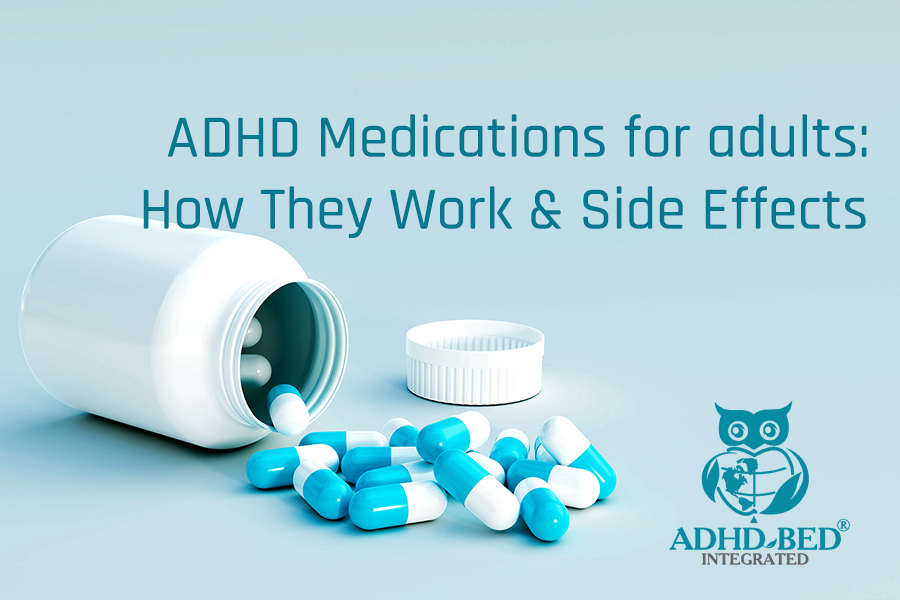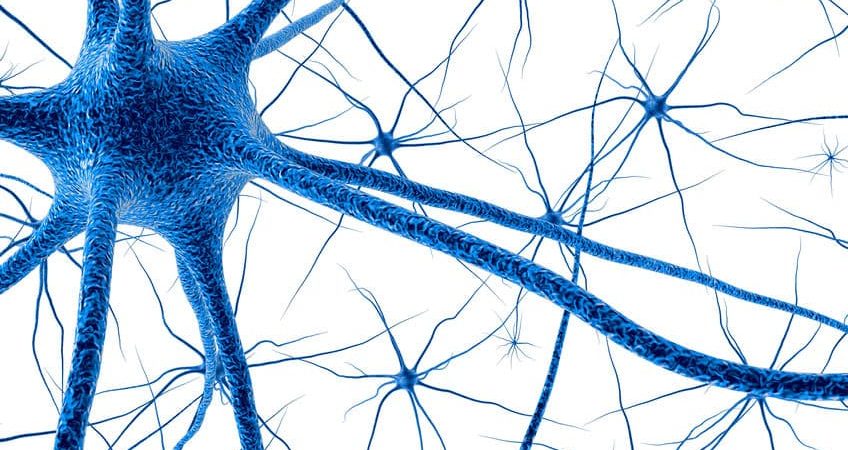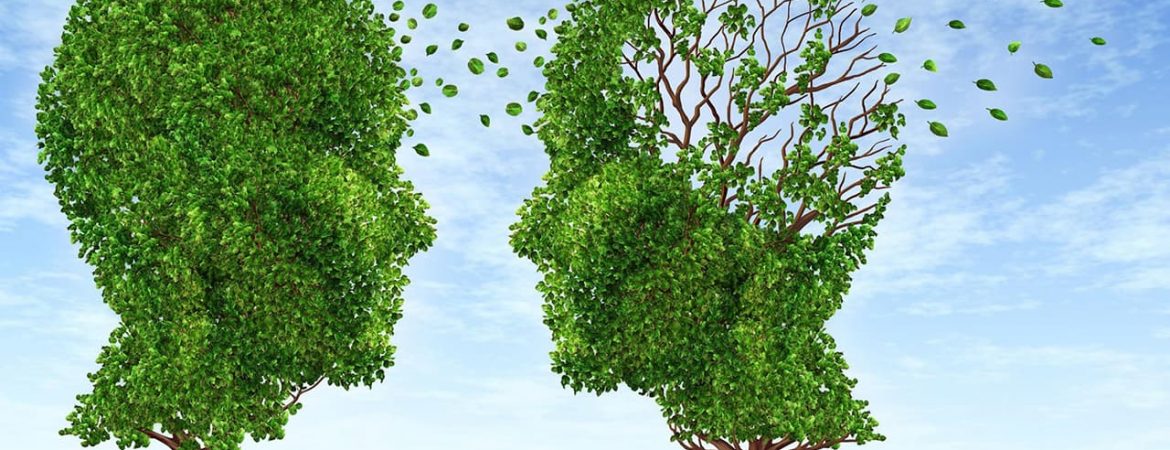Table of Contents
Introduction
Attention Deficit Hyperactivity Disorder (ADHD) is the most common childhood neurodevelopmental disorder in the world. It is characterised by symptoms of inattention, hyperactivity and/or impulsivity, which typically begin in childhood and can manifest into adulthood. People with ADHD commonly have trouble with concentrating on a task, inhibiting impulsive and hyperactive behaviour and regulating emotions. If these symptoms persist into adulthood and become a lifelong condition, such difficulties can be disruptive in every day life and negatively affect a person’s relationship with the people around them.
In order for adults of ADHD to effectively alleviate their symptoms to lead a normal life, it is crucial to seek the most appropriate and effective treatment. With the abundance of research conducted on the most efficacious methods of treatment for ADHD, there are many options that patients and their providers can consider when formulating treatment plans. Medication is the most common treatment option for ADHD, because of its high effectiveness in alleviating and reducing the severity of ADHD symptoms. It is the most widely researched treatment method, and remains a safe and effective way to treat ADHD.
This article will cover all you need to know about medication as a treatment for ADHD – i.e., what is ADHD medication, who can prescribe it and how it can affect your daily lives.
Types of ADHD Medications for Adults
There are two main types of medications to treat ADHD: stimulant medications and non-stimulant medications.
Stimulant Medications
The two most common stimulant medications used to treat ADHD are methylphenidate and lisdexamphetamine. Common brands of methylphenidate include Concerta and Ritalin, while common brands of lisdexamphetamine include Adderall and Vyvanse. Stimulant medications tend to be more popularly prescribed as an initial treatment method compared to non-stimulant medications.
Upon starting stimulant medications, most adults with ADHD have reported positive outcomes, with improved attentional and emotional control, better concentration and an overall reduction in the severity of their ADHD symptoms. However, some patients do not have similar pleasant experiences due to the side effects that may arise from using stimulant medications.
Non-Stimulant Medications
Non-stimulant medications include atomoxetine, clonidine and guanfacine. Non-stimulants tend to be prescribed as a second-line of medication treatment, if a patient shows intolerance or lack of a positive response to stimulant medications. Atomoxetine (sold under the brand name Strattera) is commonly prescribed by a practitioner if a patient presents with comorbid conditions like anxiety, bipolar disorder, substance abuse, etc. Clonidine (brand name Kapvay) and guanfacine (brand name Intuniv) are commonly prescribed as supplementary to stimulant medications, due to a smaller effect size of relieving ADHD symptoms.
Upon starting non-stimulant medications, adult patients of ADHD have similarly reported positive outcomes with improved attention and concentration, improved impulse-control and reduced blood pressure. However, these effects may be relatively less significant and shorter in duration compared to stimulant medications.
How ADHD Medications Work
Stimulant Medications
Stimulant medications, such as methylphenidates and dexamphetamines, work by targeting the areas of the brain that release dopamine, a chemical (i.e., neurotransmitter) known to be abnormally low in levels within ADHD patients. Essentially, stimulant medications act on the neurons of the brain to increase dopamine levels ready for uptake.
There are two types of medications under stimulants: extended-release and immediate-release (i.e., short acting). Extended-release stimulants (i.e., long-acting) tend to have longer-lasting effects, which can last for up to 12 hours; immediate-release stimulants (i.e, short-acting) tend to have effects within 30 minutes to 1 hour of ingestion, but have shorter-lasting effects of up to 3-4 hours. Whether a patient takes extended-release or immediate-release stimulants depends on the specific outcomes they desire – for example, the frequency of dosage or relative speed and duration of medication effects.
Non-stimulant Medications
Non-stimulant medications like atomoxetine work similarly to stimulant medications. However, they work by acting on neuron receptors within the brain to increase the levels of norepinephrine instead. Atomoxetine specifically acts on neurons to increase the levels of norepinephrine ready for uptake. Clonidine and guanfacine actively increase the activity of the receptors that receive and absorb norepinephrine.
Choosing the Right Medication
To choose the most suited medication for patients of ADHD, it is important to consider an individualised treatment approach. This means that when choosing the right medication, it is important to consider the patient’s personal goals and needs, but also take into account how patients may respond to and tolerate the medication. Different ADHD medications can have drastically different side effects that vary from person to person.
Some factors that influence medication choice are:
Medical history. Certain disorders pose as contraindications to some ADHD medications. For example, a medical history of hypertension is a contraindication for stimulant medications as they may dangerously increase heart rate. Thus, it is important to consider medical history and any other co-existing disorder that a patient might have.
Lifestyle. Factors like getting good sleep and having a well-balanced diet are important considerations prior to starting ADHD medication. Having a healthy lifestyle can help patients improve tolerance to the side effects of ADHD medications. Also, it is also important to consider daily responsibilities like going to school or work, where potential side effects may impair daily functioning.
Potential for misuse. Due to the positive effects, stimulant medications are easily misused. Individuals with a history of substance abuse and addiction are at-risk for potential misuse and abuse of ADHD medications. This can be dangerous as overuse of stimulant drugs can lead to overdose.
Side Effects of ADHD Medications
The common side effects of taking ADHD medications can include:
Decreased appetite
Difficulties sleeping
Nausea
Irritability
Changes in mood
Headaches
Some less common but serious side effects may also include:
Increased heart rate
Increase blood pressure
Stomach aches
Long-Term Considerations
Some ADHD patients are on medications for a long period of time. It is important to also consider the long-term effects of taking ADHD medications. Specifically, one’s tolerance and effectiveness of ADHD medications can change over time. For example, individuals may become tolerant of the medications over time, which decreases its effectiveness and may call for a change in dosage or change in medication altogether. Alternatively, individuals may see improvements in their ADHD symptoms due to the effectivness of the medications and can gradually reduce their dosage over time. This highlights the importance of a periodic reevaluation of a patient’s treatment plan, as there can be changes to the medication’s effectiveness and the patient’s tolerance over time. Moreover, the patient’s goals and needs may also change.
To maximise the effects of ADHD medication, it is highly recommended that patients and their providers consider complementary therapies like psychological and behavioural interventions to maximise the chances of full remittance from ADHD. Ultimately, research evidence has shown that a combination of both medication and psychological treatments is the most effective method of treating and managing ADHD.
Conclusion
In conclusion, this article covered the different types of medication options used to treat ADHD in adults (i.e., stimulant vs. non-stimulant). Their mechanisms of action, effectiveness and side effects were also discussed. In choosing the right form of medication treatment, patients are encouraged to seek professional guidance to take an personalised treatment approach and consider the various factors that may influence how they respond to ADHD medications. Ultimately, medications are the most robustly supported and widely endorsed method of treatment of ADHD, due to its high rate of effectiveness. Adults with ADHD are highly encouraged to consider medications as a treatment option, given the potential benefits of improved symptoms and quality of life.
References
American Psychiatric Association. (2022). Diagnostic and statistical manual of mental disorders (5th ed., text rev.). doi.org/10.1176/appi.books.9780890425787
Caye, A., Swanson, J. M., Coghill, D., & Rohde, L. A. (2018). Treatment strategies for ADHD: an evidence-based guide to select optimal treatment. Molecular Psychiatry. doi:10.1038/s41380-018-0116-3
Boland, H., DiSalvo, M., Fried, R., Woodworth, K. Y., Wilens, T., Faraone, S. V., & Biederman, J. (2020). A literature review and meta-analysis on the effects of ADHD medications on functional outcomes. Journal of Psychiatric Research, 123, 21-30. doi.org/10.1016/j.jpsychires.2020.01.006
Michielsen, M., Kleef, D., Bijlenga, D., Zwennes, C., Dijkhuizen, K., Smulders, J., … & Kooij, J. S. (2021). Response and side effects using stimulant medication in older adults with ADHD: an observational archive study. Journal of Attention Disorders, 25(12), 1712-1719. doi:10.1177/1087054720925884
Cortese, S. (2020). Pharmacologic Treatment of Attention Deficit–Hyperactivity Disorder. New England Journal of Medicine, 383(11), 1050–1056. doi:10.1056/nejmra1917069
Liang, E. F., Lim, S. Z., Tam, W. W., Ho, C. S., Zhang, M. W., McIntyre, R. S., & Ho, R. C. (2018). The Effect of Methylphenidate and Atomoxetine on Heart Rate and Systolic Blood Pressure in Young People and Adults with Attention-Deficit Hyperactivity Disorder (ADHD): Systematic Review, Meta-Analysis, and Meta-Regression. International Journal of Environmental Research and Public Health, 15(8), 1789. MDPI AG. Retrieved from doi.org/10.3390/ijerph15081789
Cascade, E., Kalali, A. H., & Wigal, S. B. (2010). Real-World Data on: Attention Deficit Hyperactivity Disorder Medication Side Effects. Psychiatry (Edgmont (Pa. : Township)), 7(4), 13–15.
https://www.nhs.uk/conditions/attention-deficit-hyperactivity-disorder-adhd/treatment
https://uppervalleybh.com/resources/blog/choices-choices-will-short-acting-or-long-acting-stimulants-be-best-for-you



